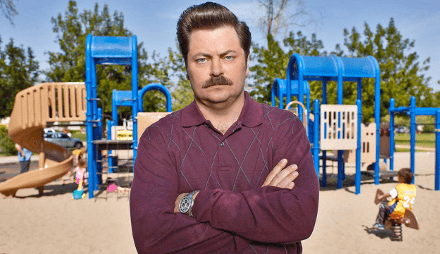As I wrote earlier this year, my TV viewing habits have, over the past 12 months, undergone a radical change. Quality US drama series, once my favoured viewing choice, have now been moved exclusively to Sky Atlantic HD, which houses all the best TV shows direct from America and even some British ones (about which more later). I am still not sure how Homeland successfully evaded Rupert Murdoch’s slippery fingers and ended up on Channel 4 but I have now begun to worry that the evil telly snatcher will sign up the Nordic Noir series that are enjoying such popularity on BBC4 (probably because the lack of US acquisitions has left money and space for more European imports) and kill off the vestiges of my television watching pleasure.

So, imagine my surprise when I stumbled across Glee still screening on Sky 1. As Cathy Johnson points out in this week’s guest blog, the series was originally scheduled to air just one day behind the US screening schedule meaning that the British audience would have to get to grips with watching the series with transmission gaps like our American friends. The channel may tell us that they felt they were best serving their customers by ‘delivering them brand new GLEE within days of the American broadcast’ but we all know that the real reason behind the change in scheduling is because the channel is actually devoted to best serving advertisers’ needs and, with so many fans now immediately downloading or streaming shows, advertisers were failing to reach their intended audience. Whatever the real reason, as Cathy’s blog makes clear, it did not work and Sky was forced to re-think their scheduling decision and hold over episodes so that they could screen every week with the series finale falling only two days after its American airing. Which is how I stumbled across the aforementioned episode of Glee in the first place.
While it felt like slipping into a pair of comfortable old slippers there were some changes. Rachel and Finn engaged (although – spoiler alert – this was never going to last), Quinn in a wheelchair (although – spoiler alert number 2 – nor was this), Brittany and Santana were now openly an item and (shock of all shocks) Sue Sylvester was some months pregnant.
Some things remained the same. Rachel is as self-obsessed and annoying as she ever was, Puck was still trying to spike Sue’s Prom punch and Principal Figgins’ hold over school discipline was as tenuous as ever. But my brief return to the world of Glee got me to thinking. What is about Glee that makes it not ‘quality’ enough to be locked down onto Sky Atlantic like their other US shows?
Murdoch has long made it his business to trade in series that will attract the key demographic – the 18-49 year olds – those with the most money to spend on the copious adverts squeezed into screenings. Indeed, the major problem with BskyB’s purchase of the whole HBO back catalogue, plus new shows like Treme, Luck and Boardwalk Empire, is the relative inability to watch a show made for screening without adverts (unusually for US TV series) being stuffed full of them; a point well made both by Janet McCabe and John Ellis on these pages. Even though (and to be fair) HBO shows like The Sopranos were originally screened on channels with adverts (4 and E4) Sky’s devotion to the commercial break knows no bounds with extra ads squeezed into an already chopped up narrative. Consider the difference between the perceived quality of HBO shows screened on commercial channels and The X-Files and 24 whose quality markers famously benefitted from being screened on an ad-free BBC. Even the out of synch ticking clock of 24 did not detract from storylines that built to a point of frenzy with dramatic intensity peaking at advert breaks that were no longer there.
Now that old spoilsport Murdoch has moved the goalposts yet again by locking down the best of TV onto his exclusive channel. But, unlike viewers in New Zealand and the US who can pay extra to gain access to HBO shows, sport and the majority of the best quality shows, in the UK we are still unable to purchase Sky Atlantic unless Sky is our cable provider. I have moaned long and hard about this decision in blogs in February and November last year and again in March this year when Mad Men hit these shores so I will not bang on about it again. But I do think that it tells us a lot about the kind of shows that BSkyB considers ‘quality’.
Is it that shows like Glee with their intended teenage audience are not attractive enough to the ‘quality’ demographic so desired by Sky Atlantic? A quick look through the schedules shows just what show Sky thinks will attract that monied audience – Game of Thrones, Seinfeld, Hit and Miss endless re-runs of Star Trek, The X-Files, ER and House and, of course, old favourites, Sopranos, Entourageand Curb your Enthusiasm. On the other hand Sky 1 now seems to favour the cheap to produce reality TV shows – Luton Airport, Obese – A year to Save my Life, Street Crime UK – new shows like Glee, re-runs of Law & Order, Stargate SG-1 and animated favourites Futurama and The Simpsons as well as re-runs of shows from Sky Atlantic like Spartacus: Blood and Sand. Channel 4 occasionally manages to score a home run with series like Homeland (again, how did this one escape Sky’s clutches?) but it is clear that the impoverished BBC will never again enjoy success with US imports like 24 or The X-Files ever again.
If it is clear that Sky Atlantic holds all the trump cards with ‘quality’ shows for the ‘quality’ demographic what is to be made of the way shows are now ghettoised on Sky 1? Does a series’ appearance on the channel now sound the death knell for any aspirations towards that ‘quality’ descriptor? For example, what about shows like Touch? Now showing on Sky 1 will it ever rise above the mantle of ‘sentimental escapism’ with not even a nod to the good old days when Murdoch taunted Virgin customers with the ‘Get Jack Back’ campaign. Sutherland’s new series instead languishes on the channel of rejects from Sky Atlantic sandwiched between The Simpsons and Starlings.
News that Sky Atlantic is the sole distributor of shows like Hit and Miss by Paul Abbott is yet another nail in the coffin of my future TV viewing habits. Coupled with the announcement on 5 April that the channel intends to honour its ‘significant commitment to original British content’ with its major investment into ‘in feature-length British films for television’ and, more worryingly, ‘the best new documentary films on Sky Atlantic, which will be available exclusively for customers from 2013’ and the writing now seems on the wall for quality shows on terrestrial, freeview and Virgin channels.
I like to keep positive and think that all is not lost. I can still live in hope that Sky will relent and allow non-Sky subscribers access to Sky Atlantic, even if we have to pay extra (in the same way that HBO and SoHo subscribers do) to watch new homegrown quality shows as well as imports from the States. And, in the meantime I can subscribe to providers like Love Film and get the HBO shows once they have finished their first run on the exclusive, locked down channel, or I can buy them and watch them at my leisure in the same way that I watched The Wire, obsessively and impatiently, tired of waiting for it to come to these shores. But still, I worry that quality pickings are only available to those that can afford them. While it is obviously sound commercial practice to use all means possible to attract an audience with disposable income, the quality demographic so desired by advertisers, is it really fair for lower income families to be offered only lower quality shows? It maybe a canny business model to lock down quality content behind a paywall, but Murdoch’s two-tier TV system is not creating demand as much as creating a hierarchy of TV viewing with a model of exclusivity that does quality TV no favours.
It seems a long time since we were having the debate over what was deemed quality television. Back in 1984 Jane Feuer, Paul Kerr and Tise Vahimagi went part way towards a definition in their collection MTM: ‘Quality Television’, Robert J Thompson took up the challenge in his now seminal 1996 book Television’s Second Golden Age and then in 2007 Janet McCabe and I gathered together another selection of scholars in our attempt to define what was understood as quality TV in the post-digital age in Quality TV: Contemporary American Television and Beyond. In many ways it was always easier for us in the UK as our channels only ever screened the shows that had been a hit in the States. The Sopranos may not have enjoyed a large audience on HBO but it was critically acclaimed and, as such, Channel 4 were not taking too much of a gamble when they purchased the series. Nearly 30 years after Feuer et al’s look at MTM as a quality stable it seems that we have, in Britain, come to the point where only a limited coterie can now have that debate – but then it hardly seems to be a debating point any more as all the best shows are hidden behind that paywall. Quality TV is no longer for that quality audience. It is for those that subscribe to Sky.
On Tuesday I found myself watching 90210, another show that is obviously considered ‘below’ the quality line. Sitcoms like The Big Bang Theory, How I Met Your Mother and Scrubs remain wall-to-wall on E4, as do re-runs of Glee and what remains of Desperate Housewives. As each of the old series end, first Ugly Betty and now Desperate Housewives, I begin to give up on ever watching quality American series on my TV again and my mind begins to turn in ways that I have never before considered. Like pirating, streaming has always seemed ‘cheating’ to me. But, with the only way to view quality shows now being a choice between changing TV, telephone and broadband provider, giving money to Murdoch or illegally streaming TV shows, I fear that I may have to join the hoards of viewers now forced to break the law by watching TV on their computers.
On May 31st I introduced X-Files’ Frank Spotnitz to a gathered audience of students and staff at the University of Hertfordshire’s end of year show. As I wrote his introduction I was seized by panic. Would his new series Hunted be screening only on Sky Atlantic? Another quality offering that I would never get to see? You can imagine my relief to find that not only will Spotnitz’s new series not be screening on Atlantic but will be screened, commercial free, on the BBC. It is at moments like this that I feel special and remember the days that I too was considered one of that quality demographic. This Autumn, I will enjoy that distinction yet again, even if only for a short time.





